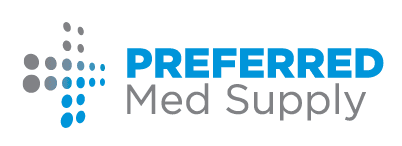Opiates, also commonly referred to as narcotics, are a type of drug that includes prescription painkillers and illegal drugs. These drugs are responsible for depressing the central nervous system which relieves pain and produces feelings of happiness and euphoria.
Opiates are drugs derived from the opium poppy or substances that have a similar effect on the brain and the body. Artificial substances that mimic the effects of the opium poppy are known as synthetic opioids. Prescription drugs like codeine, fentanyl, and morphine are all variations of opiates, as well as illegal drugs like heroin.
Preferred Med Supply has drug testing kits that can help you spot opiate usage in friends, family, workers, or anyone else you may suspect is using opiates. If you’re uncertain if someone you know is using opiates, these signs can help you know if someone should get tested or not.
What are Opiates? 
Opiates are very helpful for medical treatments but they are highly addictive. If you use opiates repeatedly, you can develop a serious substance abuse disorder that is dangerous to both your mental and physical health. Becoming addicted to opiates or abusing them will greatly increase the odds of an accidental overdose. An overdose can lead to breathing problems, coma, or even death. The Center for Disease Control and Protection states that drug overdoses are the leading cause of accidental death in the United States, with opiate drugs making up 70% of these cases.
If you or a loved one has an opiate addiction, it can seem like recovery and normality are impossible to achieve. With expert help and assistance, anyone can return to a life without opiate in it.
What Causes an Opiate Addiction?
Opiate addiction is when a person compulsively seeks out and uses opiates, even when they know that it is harmful to them and their well-being. When someone takes an opiate, their brains are immediately flooded with dopamine and other endorphins.
These are normally released when we do a certain satisfying task, like working out or eating something we enjoy. The sensations that we experience after taking opiates are much more intense than what we feel from naturally occurring endorphins. It is these feelings of overwhelming pleasure that cause people to become addicted.
If you use opiates over a long period of time, your body will begin to no longer produce these chemicals naturally. You may become physically dependent on these substances in order to feelings of pleasure.
Repeated use of opiates will cause a tolerance to the drug, meaning you have to take more in order to feel the same effects. Your body basically adjusts to the drug so that when you stop taking it, you experience a number of different withdrawal symptoms.
What is Opiate Abuse?
Opiate abuse is when you take an illegal opiate or a prescription opioid in a higher dose than your doctor prescribed. An example, of taking illegal opiates, such as heroin, is opiate abuse. Taking opiates for their effects rather than their medical benefit is also an example of opiate abuse.
What are the Signs and Symptoms of an Opiate Addiction?
If you recognize any of these signs in yourself or a loved one, chances are they are suffering from opiate addiction.
The physical signs and symptoms include:
- Confusion
- Diarrhea or constipation
- Sweating
- Headache
- Nausea
- Tiredness
- Constricted pupils
- Moments of loss of consciousness
- Unusual levels of euphoria
- Slow breathing
Behavioral signs include:
- Social isolation
- Obtaining prescriptions from more than one doctor
- Mood swings
- Financial problems
- Anxiety
- Insomnia
If you or a loved one exhibit any of these signs, seek out professional help immediately.
Commonly Used Opiates
Tramadol is a prescription opioid painkiller that doctors will prescribe to deal with moderate to moderately severe pain. While it is considered one of the safer opioids, it can still be abused for the pleasurable effects it brings.
Constant use of Tramadol can be hazardous to one’s health. It can lead to seizures, convulsions, and problems with breathing.
Hydrocodone medication is the most commonly prescribed medicine in the United States. Like other opioids, it can produce effects of euphoria and relaxation when taken in high doses.
Doctors will commonly prescribe this as a pain reliever. Even when using this drug as advised, it can still lead to addiction.
Treatment for Opiate Addiction
The most effective drug rehab program will mix various treatments together to suit an individual’s needs. Many people will turn to detox centers. Most treatment centers will start with detox which helps remove the various toxins from your body.
Overcoming opiate addiction may be difficult, but it can be done. Users that have overcome opiate addiction have done so with the help of rehab, family therapy, support groups, behavioral therapy, and dual diagnosis.
The best way to treat opiate addiction is to recognize the signs early. Doing so will prevent the addiction from becoming something even worse. If you know someone that is possibly using opiates, visit our shop page today and get an at-home drug testing kit. These kits will give you the answers you need to ensure that someone you love doesn’t go down the wrong path.

